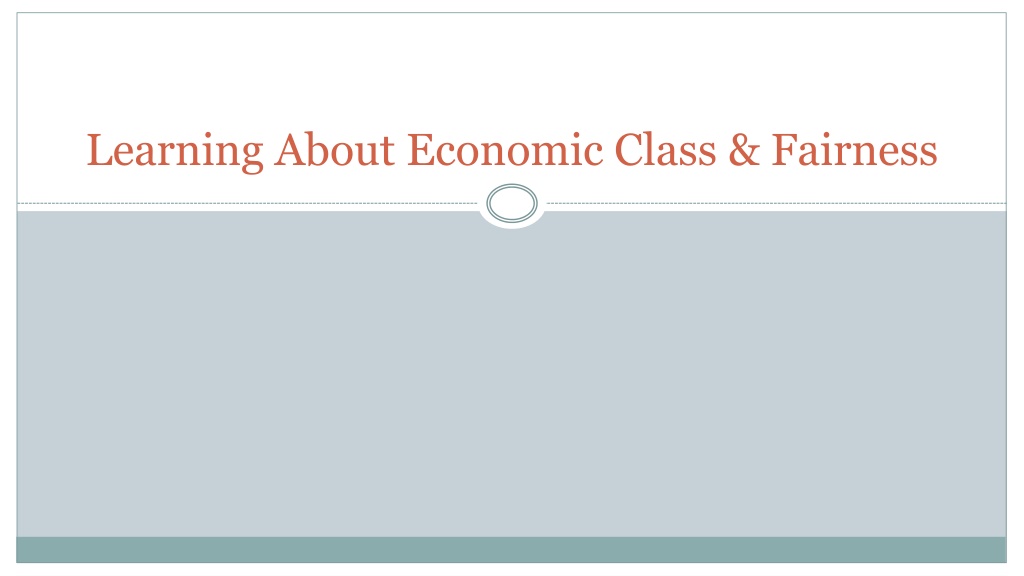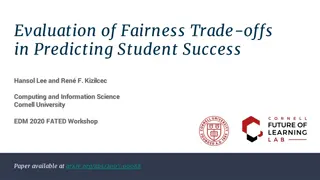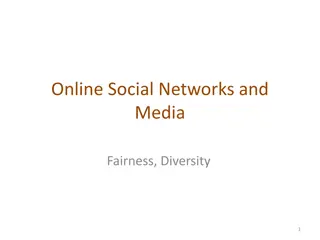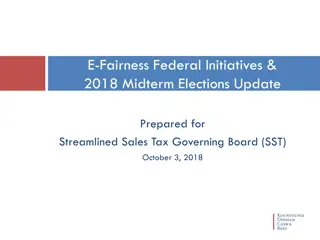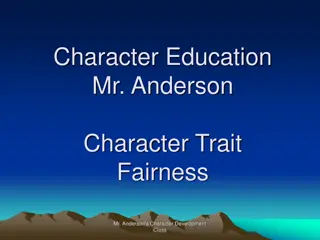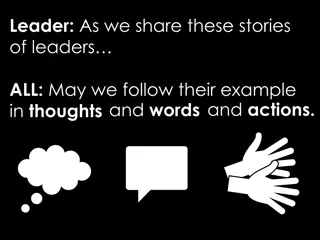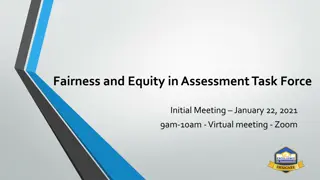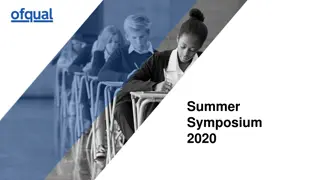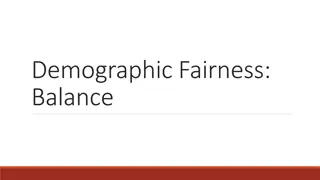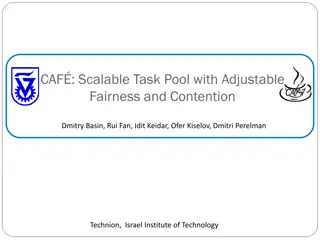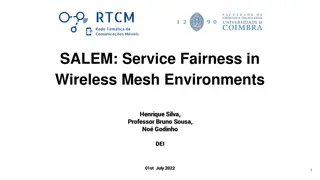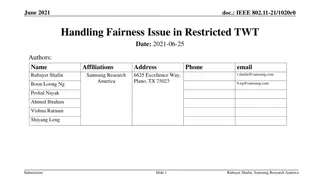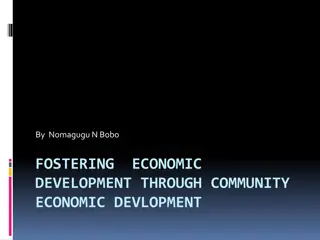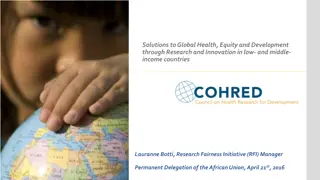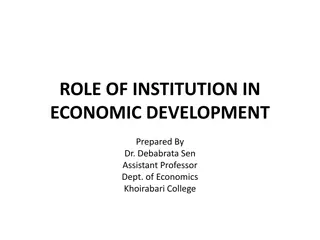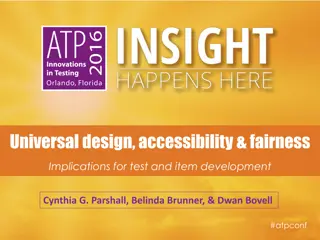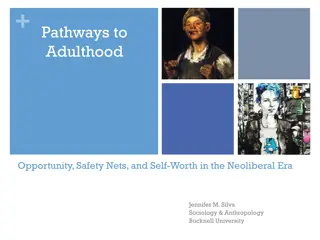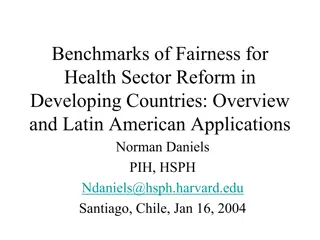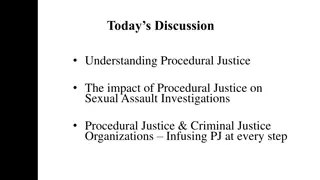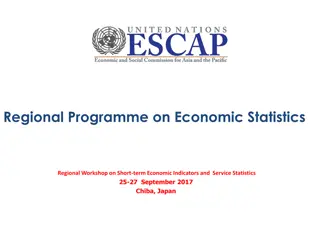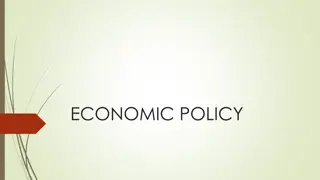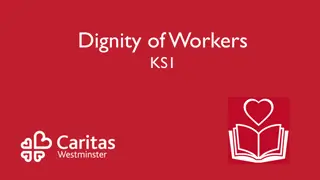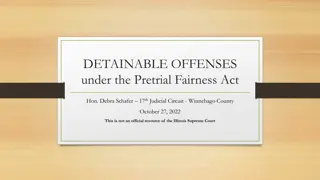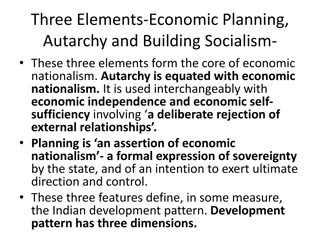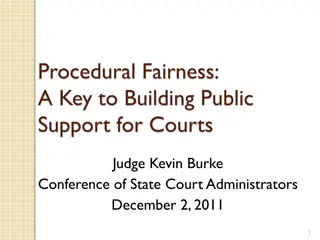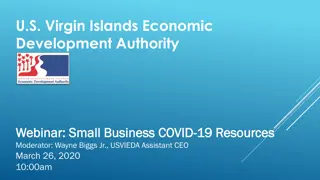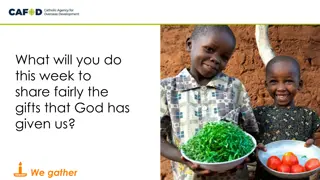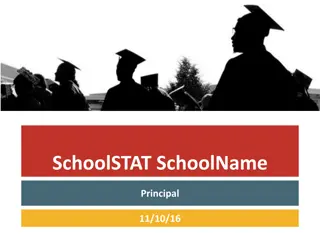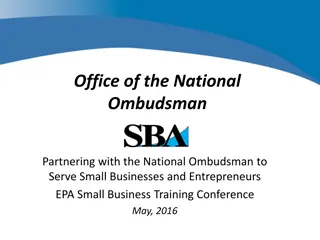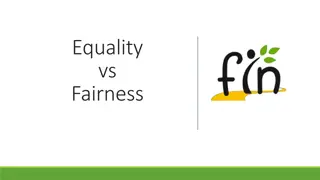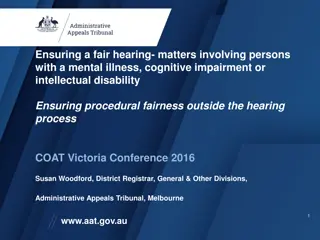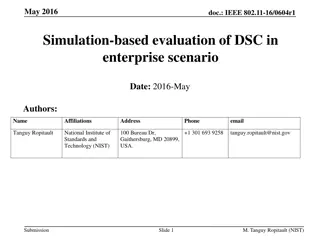Understanding Economic Class and Fairness in Children's Development
Explore how economic class deeply influences young children, impacting their access to resources like safe housing and nutritious food. Children absorb messages about work, materialism, and entitlement, highlighting the need for fostering non-classist interactions and creating equitable learning environments. Strategies focus on promoting resilience, understanding, and cooperation among children of different economic backgrounds.
Download Presentation

Please find below an Image/Link to download the presentation.
The content on the website is provided AS IS for your information and personal use only. It may not be sold, licensed, or shared on other websites without obtaining consent from the author. Download presentation by click this link. If you encounter any issues during the download, it is possible that the publisher has removed the file from their server.
E N D
Presentation Transcript
based on economic class deeply affect young children A lack of resources (safe housing, nutritious food, and regular health care) may put children at risk Many poor people work very hard and remain poor. They may have more than one job An increasing number of children are living in cars, on the streets, or in homeless shelters They may have low energy because of the poor diet
Childrens Experiences and Understanding of Economic Class and Fairness Children pick up social messages about the value and importance of different kinds of work, including the work that their family members do Posters on the community workers sends the message what jobs are important Children receive messages that material things are proof of love and approval (get rewards for good behavior) Children learn attitudes of entitlement and superiority or dependency related to their economic class (children from greater income will get the message of having a greater right to the materials)
Children do not yet have the skills to sort out advertising messages that tell them they need to have various material things Children pay close attention to how adults interact, and they pick up key messages about class differences Young children can (and do) develop resiliency and the skills to handle challenging economic realities
Strategies for Exploring Economic Class and Fairness Create a welcoming and equitable learning community: Have the same high expectations for children from every family Pay attention to each child s unique learning styles and skills Be mindful of families concerns about clothing (have aprons to avoid for children to get dirty) Use sensory materials that are not food
Foster Non-classist Interactions Make a decision not to focus on children s new possessions during group and sharing times Encourage preschoolers to use toys and materials cooperatively, so the children learn to share Help children to work together cooperatively (group collage, mural painting) Create persona doll stories that help children recognize and challenge hurtful stories and behaviors that humiliate children from families who have lower incomes
Promote Knowledge and Appreciation of Everyones Contributions Find books that honor the invisible work done by member of the families in your program Make a class book with photos of all the support people who keeps your program going Work with children on recycling to do activities Create a theme on where we live, including various housing If your program celebrates holidays, let children make gifts instead of buying them
Support Families Across Economic Lines See yourself as a partner with all families Have an open-door policy in your class, and plan ways to welcome and include family members when they visit Set up a family resource room Find out what each family needs in order to participate in the classroom, conference, and meetings (consider their working hours) Get to know the children s community (library, shops, events) and invite the community members to your class Compile a listing of family support resources
Classism in Our Profession Work to create an atmosphere where you and your colleagues can openly share and discuss issues Celebrate and model complete respect for the work your staff do Work to create equal opportunity access to professional development Share with families about the real coast of quality early childhood programs
